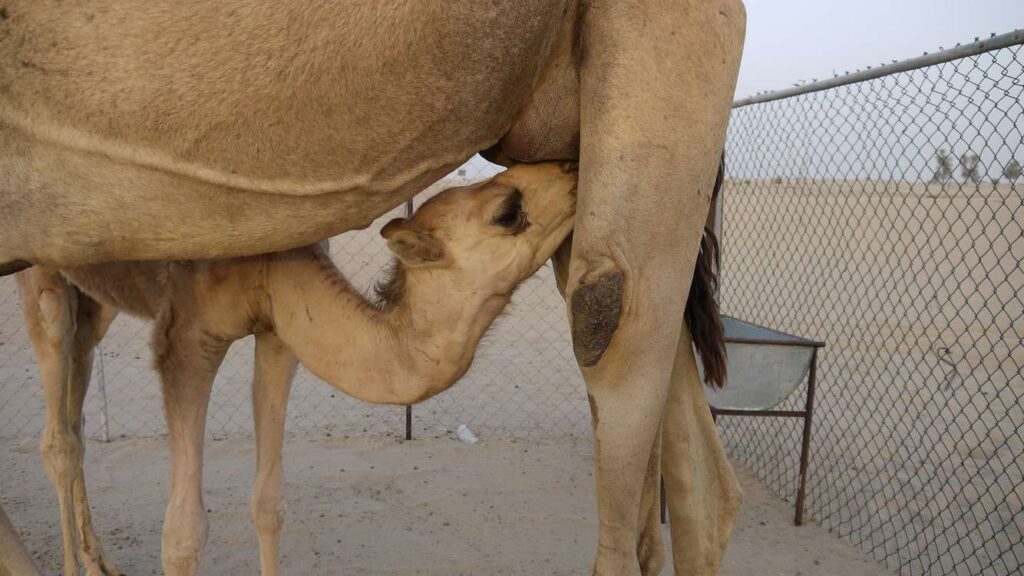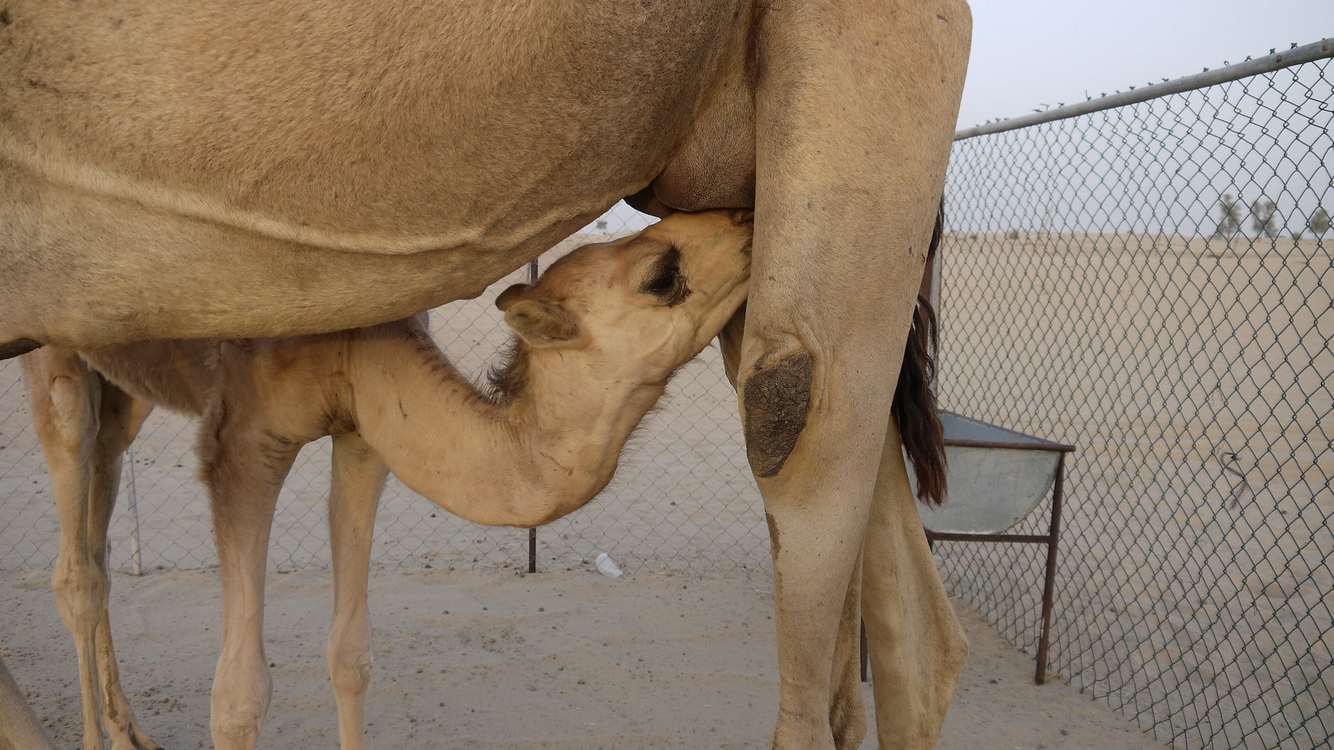 A camel and calf milking – credit, krebsmaus07, CC BY 2.0 via Flickr
A camel and calf milking – credit, krebsmaus07, CC BY 2.0 via Flickr
In an exclusive for AP, Somalia’s camel dairies speak with hope about the future in a country that often has very little to hope about.
From outside government meddling and invasions, to regular bombings, insurgencies, famine, and piracy, “Somalia” and “investment” are two words that rarely go hand in hand.
But the country and its people are master camel herders since time immemorial, and armed with modern veterinary practices, scientifically selected fodder, and industry-standard hygienics, a new camel milk industry boom is poised to play a small part in advancing the economy.
Camel milk contains nutrients like magnesium, vitamins B12, C, D, and A, iron, and zinc, while simultaneously carrying very low-levels of lactose. It’s a critical nutritional staple in one of the few countries in the world that has undergone a true, bona fide famine in the last 25 years.
Beder Camel Farm is one establishment in this new generation of camel dairies that are trying to modernize the ancient production and consumption methods of camel milk.
Each milking camel can produce 2.5 gallons per day, which is about twice as much as what’s collected by traditional pastoralists. Holding 40% of the nation’s market share, and employing hundreds of both seasonal and full-time employees at the farm and dairy facilities, Beder is leading this movement.
The country is eager to see the camel milk industry develop. It not only provides milk—for all its uses—but has graduated to yogurt; produced and packaged for sale in the markets of Mogadishu.
MORE RURAL DEVELOPMENT: Ethiopians Brew Success as Coffee and Cash Pile Up Thanks to Transformational Sustainable Forestry Program
“The benefits of camel milk are countless,” Dr. Kasim Abdi Moalim, Director of Animal Health at Somalia’s Ministry of Livestock, told AP. “In countries like the UAE, camel milk is also used for cosmetics. Somalia must catch up and develop the full value chain.”
Future initiatives for Beder involve educational outreach to the country’s pastoralist community who raise millions of camels (there are more camels in Somalia than any other country). If they can better select the animal’s fodder, apply basic hygiene, and keep an eye on the camel’s health, these pastoralists could access Beder’s supply chain, bringing more value to the country.
RURAL INDUSTRY: Rural Fishermen Entrusted to Manage Pristine Caribbean Shoreline to Safeguard Their Fish and Future
In economics, one of the most fundamental principles is that wealth is created, not distributed. Everything in society today came about from a state of empty nature, wherein a product or service was offered that customers liked, and the rise in demand caused a genesis of supply that created production methods, employment opportunities, paychecks, etc.
One solid market institution like Beder can transform whole regional economies, and there are few regions more in need of transformation in the economic sense than the Horn of Africa.
SHARE This Rich News For A Poor Country With Your Friends…

